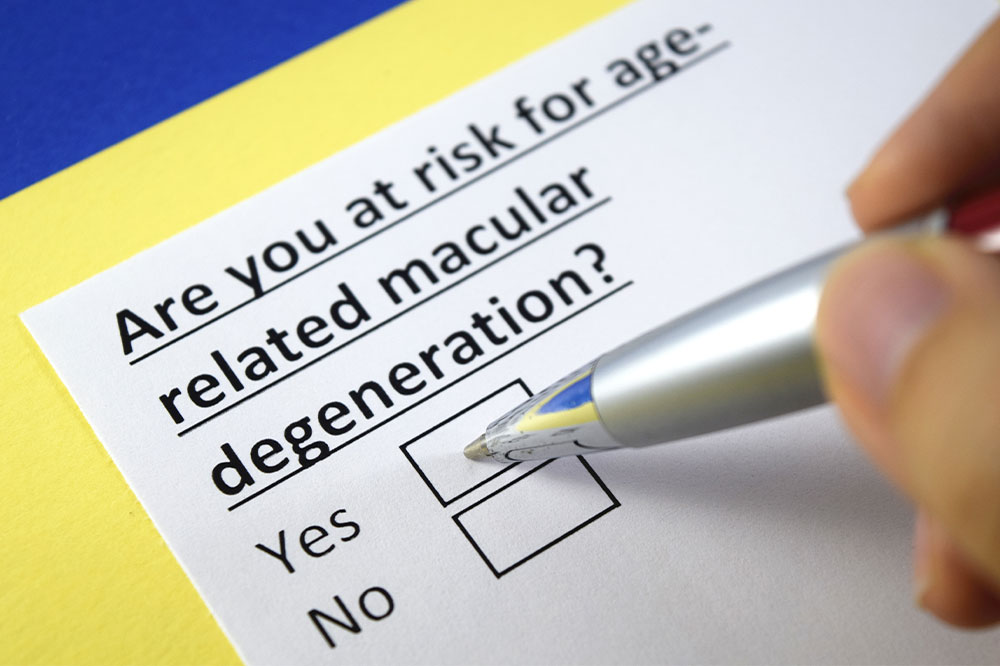Macular degeneration – Early symptoms and foods that may help prevent it

Macular degeneration is a condition in which the center of the eye, also known as the macula, undergoes certain changes that lead to loss of vision. Since this condition is observed as a result of aging, it is also called age-related macular degeneration or AMD. This condition, if not managed properly, can lead to complete loss of vision and is one of the biggest causes of blindness in people over 55 years of age.
Early warning signs
There are some early warning signs that the elderly must look out for when suspecting macular degeneration. Some of them are as follows:
Distortion and blurred vision
If the vision starts to blur with age and one notices distortion or wavy lines in the field of vision, it is quite possible that one may be in the early stages of AMD. Those who are over 50 years of age should not ignore such blurred vision since they are more vulnerable to macular degeneration.
Dark spots in central vision
Generally, the central part of one’s field of vision ought to be the clearest with no blurriness or distortion. If one begins to notice shadows, white spots, or dark spots in this part, it is highly possible that one is suffering from AMD.
Foods that can help with AMD
Those above 50 years old are vulnerable to AMD and must take the necessary precautions to protect their vision. Some foods that can help slow down AMD are as follows.
Salmon
Salmon is a great source of omega-3 fatty acids, such as EPA, DHA, and ALA. These fatty acids are anti-inflammatory in nature and also help in lowering LDL cholesterol levels in the blood. These properties are known to directly affect macular health. Thus, salmon and other fatty fish like mackerel and sardines can help in reducing the risk of AMD.
Spinach
Green leafy vegetables are rich sources of powerful antioxidants such as Vitamins A, C, and E. They also contain minerals like zinc and copper that help our body absorb the aforementioned antioxidants. In addition to the carotenoids in colorful vegetables, these antioxidants are important for the maintenance of photoreceptors in the eye that are situated on the macula and are responsible for healthy vision. Kale is also an excellent option.

